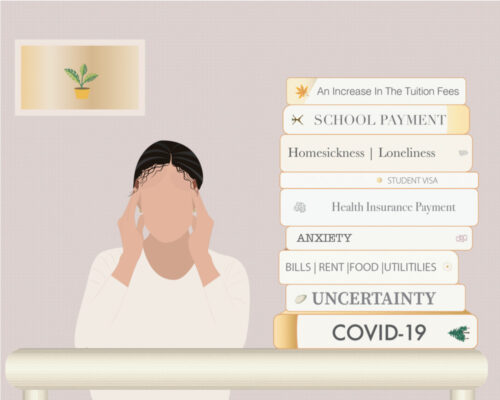City College Increases Non-Resident Tuition Fees
By Matheus Maynard
mmaynar7@mail.ccsf.edu

Although City College remains tuition free for San Francisco residents, the college’s international student community got a wake up call — a $51 per unit increase.
The City College Board of Trustees approved an increase in the tuition fees for international students from $239 to $290 per unit, effective at the beginning of summer instruction. However, because of the economic hardship that the COVID-19 pandemic has caused worldwide, students are petitioning for a hold on this increase.
Senior Vice Chancellor for Administrative and Student Affairs Dianna Gonzales presented the proposal to the board on Feb. 27. She said the increase was in keeping with the rates charged at other Bay Area community colleges for fiscal year 2020-2021. Currently, a nonresident student pays a $290 per unit tuition fee, a $46 enrollment fee, and an $8 of capital outlay.
International students, if not in a special authorization, are required to take a minimum of 12 units every semester to maintain their visa status. They also must pay mandatory health insurance that has also increased from $954 to $1,110 for a six-month coverage term. In spite of the COVID-19 pandemic, education has changed drastically as classes moved to an online environment and financial hardship haunts many students. For this reason, nonresident students are petitioning the college to put a hold on this increase until economic hardship is relieved.
International student Alanna S. do Vale, started a petition to stop the increase. She already has gathered a few hundred signatures from fellow nonresident students.
“We are not able to pay for rent, food, basic care needs, utilities, medical care, and bills. And the enormous exchange rate is not in our favor. Our families in our home countries also lost their jobs, which consequently prevents them from helping us financially,” Do Vale’s stated in her petition.
International students have no access to most support and resources provided by the government, including the stimulus check and unemployment benefits. They not only pay higher tuition fees in the United States, but they also have no access to most scholarships, financial aid, or most student loans, and very limited legal job opportunities while on a student visa.
Fourth semester international student Shannon Fracchia said, “I know studying in the U.S. is not cheap, but I didn’t expect that in such a situation they are going to raise the tuition. It’s a difficult situation for everybody.”
For the 2019-2020 fiscal year, nonresident tuition fees alone brought over $10 million to City College in revenue, according to the college’s Annual Financial and Budget Report.
For some international students, the problem is compounded when classes are cancelled. Davi Luo, a second semester international student in the Aircraft Maintenance program, is facing a complicated situation. Since his spring classes were canceled and couldn’t be taught online, he did not receive a refund for the thousands of dollars he paid for that term.
“Yes, it will affect me drastically because my financial support was planned until I finish the course without any problems until I get my certificate. But since the virus stopped my classes for who knows how long, it’s gonna be really hard to maintain myself in the U.S. financially (paying rent and food). So, it really worries me as if I will be able to get support until I can get my certificate.” Luo said.
Fourth semester international student Klaisyon Borges is considering leaving City College since he thinks it will be a better deal to transfer out.
“What I can say is that it [City College] is not what it was before," he said. "The major advantage of CCSF was actually the tuition. Now, with lower classes and higher cost, its key highlight is gone.”
Borges added: "Other area colleges like the College of San Mateo, College of Marin and De Anza College became more appealing. Besides the tuition, the living cost around them is also cheaper. Most importantly, they offer classes that CCSF don’t. The transition is not that easy, but due to recent events, it might be worth a try.”
Luo also questions if City College is “good as it was before” because of class cuts, but he does not regret his decision about choosing City College for his education.
“I don’t think it’s a good time to raise tuition, especially when we still get class online which makes it even harder to get good grades. Some people have more difficulties to study online, so they have to drop, and retake classes and it is very expensive,” Fracchia added.
At press time, campus officials did not respond to our numerous attempts for an interview regarding this decision.
